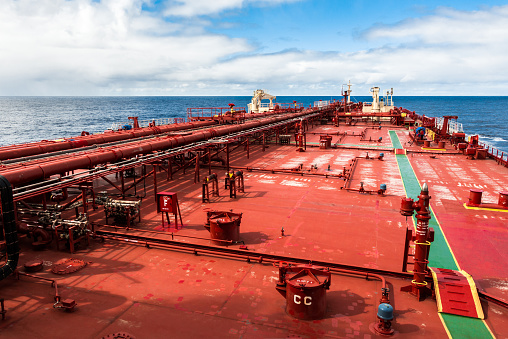Bangladesh is set to import 0.005% sulfur gasoil from India via the maiden oil pipeline connecting the two countries from March, state-run Bangladesh Petroleum Corporation chairman ABM Azad told S&P Global Commodity Insights Feb. 20.
“Construction of the pipeline, which began in early 2020, has already been completed and the facility now waits to be commissioned to carry gasoil from India,” he said.
The commissioning date of the pipeline is expected to be March 17. Indian Prime Minister Narendra Modi and Bangladeshi premier Sheikh Hasina are expected to inaugurate operations of the India-Bangladesh Friendship Pipeline jointly through videoconferencing, he said.
The pipeline stretches 125 km through Bangladesh and 5 km through India, passing through Panchagarh, Nilphamari and Dinajpur to the Parbatipur oil storage facility in Bangladesh.
Once the cross-border pipeline is in operation, Bangladesh will cease importing gasoil from India by railway.
Bangladesh currently imports around 2,200 mt/month of 0.005% gasoil from India’s Numaligarh Refinery Ltd, or NRL, via the West Bengal Railway and then the Bangladesh Railway to Parbatipur oil depot in the country’s north.
“The India-Bangladesh Friendship Pipeline is aimed at supplying gasoil to Bangladesh’s northern region, where transporting of fuel is difficult from the country’s main sea port, Chattogram [also known as Chittagong] in the south,” Azad said.
Indian gasoil will be consumed in the agricultural northern region, where diesel demand is around 1.1 million mt/year, equating to around one-fifth of Bangladesh’s total gasoil requirements, he said.
Gasoil imports via the pipeline will be cheaper and more efficient than rail supplies, he added.
BPC will purchase Indian 0.005% gasoil from NRL for 15 years at a negotiated premium of $5.50/b to the Mean of Platts Arab Gulf gasoil assessment on a CFR basis for delivery via the pipeline, he said.
The pipeline is likely to initially carry around 250,000 mt/year of gasoil under the agreement between the two countries, the official said. The volume will be gradually increased to 400,000 mt/year during the first five years and may subsequently increase to around 1 million mt/year, Azad said.
The volume may also be adjusted periodically based on demand, and imports may be extended beyond the agreed 15 years subject to mutual discussion, he added.
Other pipeline projects
Bangladesh is also laying a 246 km pipeline to supply refined oil, including 0.005% sulfur gasoil, from Chattogram port to Dhaka in an attempt to counter pilferage and ensure rapid supplies, said.
About 50% of work on the Taka 28.61 billion ($286 million) pipeline has been completed, he added.
Another 17 km pipeline to carry A-1 jet fuel is also under construction to connect tanks at Hazrat Shahjalal International Airport with pumping facilities at Pitolganj on the Balu River, he said.
Bangladesh currently depends on coastal tankers, railways and lorries to carry refined oils to end-users after imports from global suppliers reach tanks at Chattogram, which has no major oil-carrying pipeline.
Small, mostly private-owned barges carry petroleum products on river routes for BPC, Azad added.
BPC plans to import around 5.31 million mt of gasoil in 2023 to meet mounting demand for 0.005% sulfur gasoil. Its current import cost for 0.005% is $131/b with a $12/b premium, another senior BPC official said.
The domestic pump price of gasoil is currently Taka 109/liter ($1.01/b) after a price hike last August. “We are now incurring loss of around Taka 13-14/liter,” the official added.
Source: Hellenic Shipping News






